Just like in any other field, the use of AI for medical research is undeniable today. They are essential for medical research and writing to assist with in-depth research, summarize, analyze, and develop content fast and accurately.
Academic writing, especially in the medical field, requires handling large amounts of complex data, insights, etc., across domains. This is when integrating AI in medical research and writing can help. Medical writing is characterized by structured ideas, data-driven findings, insightful arguments, and reasoning. Using the assistance AI tools like ChatGPT and others can offer time-saving, data-backed, and accurate solutions. Researchers use these AI solutions for writing assistance, improving grammar, optimizing structure, and double-checking data. This is the finding from a systematic review of medical content published since 2019 from databases like PubMed, Embase, and Google Scholar.
In this blog, I will be discussing key use cases of AI tools in medical writing and research, AI tools categories with examples, some of the most popular tools, their features, the benefits of using AI tools, and the future of medical writing with AI.
Use Cases of AI Tools in Medical Research
- For Content Search and Summarization: AI tools can quickly search, analyze, summarize, and structure large amounts of content, medical articles, for identifying findings and key research.
- For Drafting and Editing: Using AI-powered solutions, you can edit, draft, enhance readability, correct grammar, and align your work with publication standards.
- For Simplifying and Translating: Medical writers can use these tools to simplify complex medical jargon, paraphrase heavy sentences, translate to multiple languages for global readers, and much more.
- For Reference and Citations: Many AI medical writing tools help users with citations, reference checks, automate citation generation, and conduct context of references for accuracy.
- For Extracting Data and Synthesis: Advanced AI tools can extract and synthesize medical and research data, also for systematic reviews.

Categories & Examples Of AI Medical Tools
Medical AI tools come in various types and perform specific functions. In this table, I’ve mentioned some popular categories of tools used by medical and research writers and their most common examples.
| Type of Tools | Example/s |
|---|---|
| Search Tools | Scholar AI, Elicit, Consensus |
| Summarization Tools | MediSummary, Scholar AI |
| Data Validation Tools | Clinion AI, OpenEvidence |
| Writing & Editing Tools | Paperpal, Quillbot |
| Collaboration Tools | ZoteroGPT, Scholar AI, Paperpal |
Some Popular AI Tools For Medical Writing in 2026
1. Scholar AI
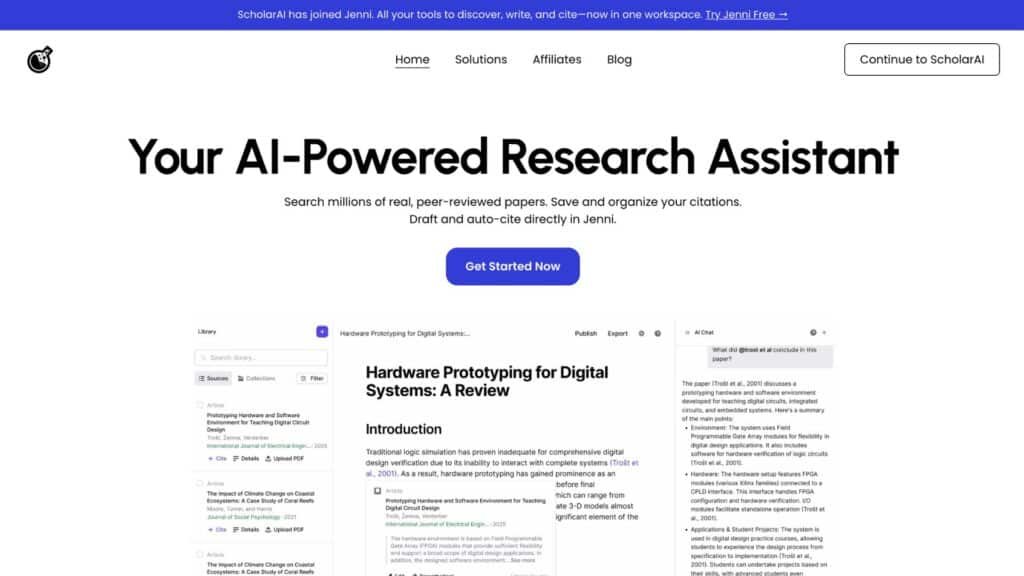
It is an AI-driven assistant for medical writers, used for searching, analyzing, and summarizing medical content fast and correctly. It is also used to organize medical research papers with minimum effort. With this tool, researchers can get access to over 200 million peer-reviewed papers and patents quickly. Today, Scholar AI is trusted by over 600,000 researchers at notable institutions.
Features:
- AI summaries
- Q&As from various articles
- Data extraction
- Integration with PubMed
2. Elicit
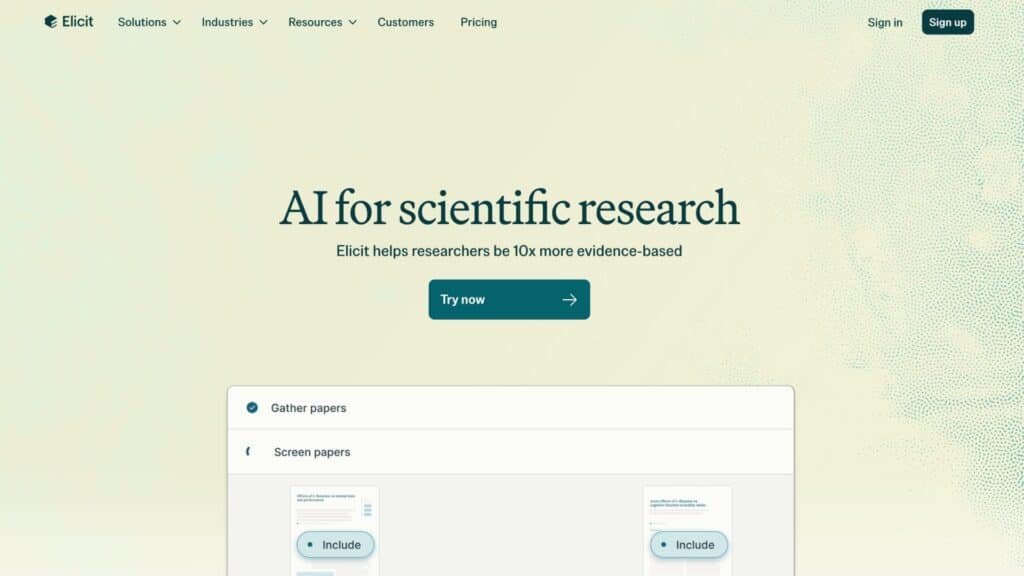
An advanced AI-powered tool that is used by researchers to extract structured data from scientific papers. It is developed to assist in automating researchers’ workflows, including medical writing. Simultaneously, Elicit can compare methodologies and results. It can be used extensively for finding gaps in research and for systematic reviews.
Features:
- Analysis of citations
- Semantic similarity search
- Highlight identification
- Content search
- Automatic Q&As
3. Consensus
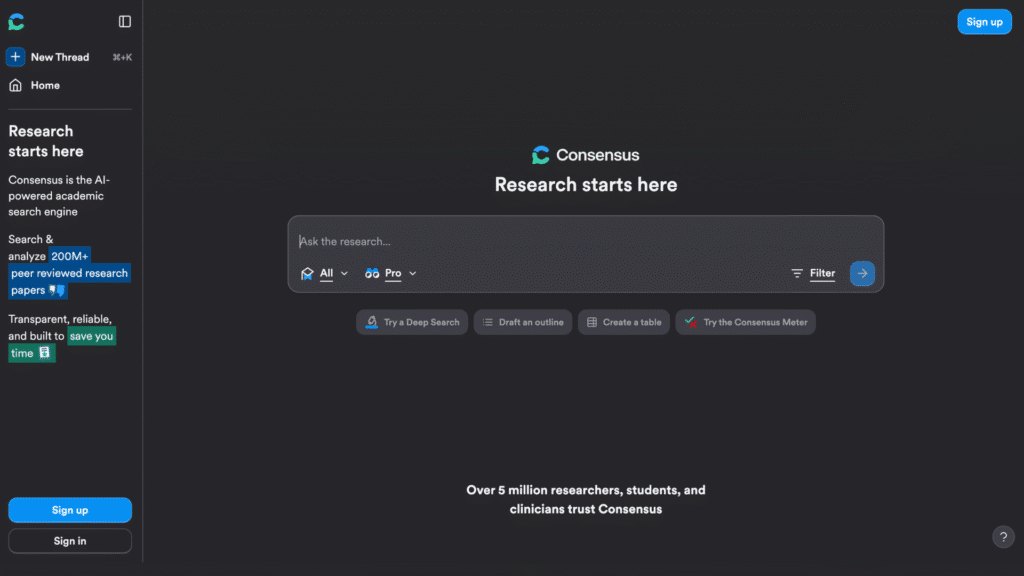
Another AI-driven search engine developed specifically for medical writers and researchers. They can use it to search, understand, and use medical research papers across databases of over 200 million scientific articles. It can answer specific medical questions, particularly the Yes/No type. It is also used to determine scientific consensus across numerous studies to assist users with evidence-based content and decision-making.
Features:
- Personalized search filters
- Consensus meter
- Professional analysis
- Concise summaries
- Findings extraction from scientific research papers
Related: Top 5 Market Intelligence Platforms for B2B Success
4. Scite AI
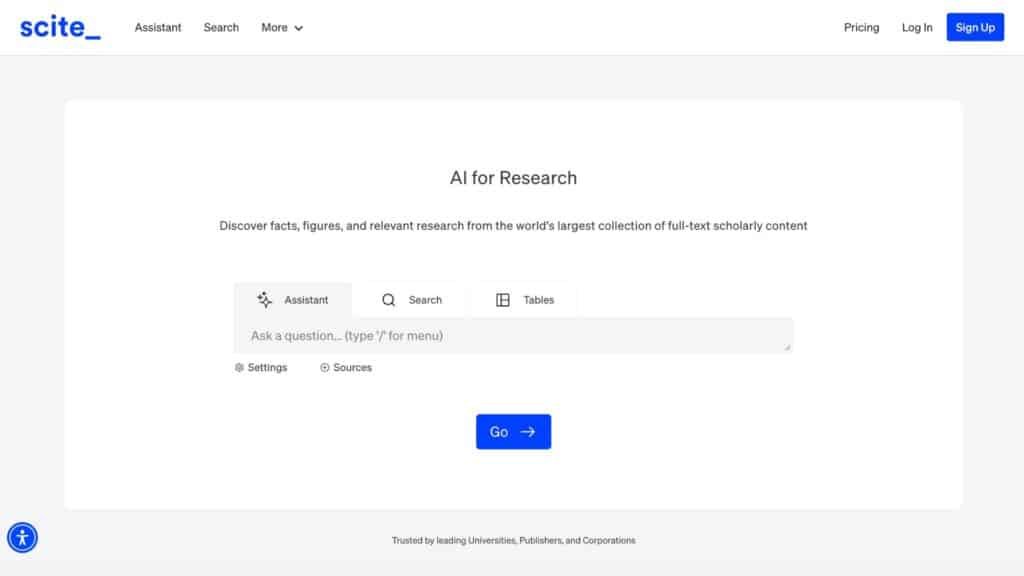
Focused on analysis of scientific citations, Scite.ai is a useful AI tool for getting insights on how these researches are cited. It also assists in getting accurate and insightful contextual content reviews and the development of manuscripts. It is a complete citation database that indexes huge amounts of full-text articles across biomedical sciences, life sciences, and others.
Features:
- Smart citations
- Citation context analysis
- Research impact monitoring
- Conversational AI
- Visualizations and reports
- Citation alerts
5. Semantic Scholar
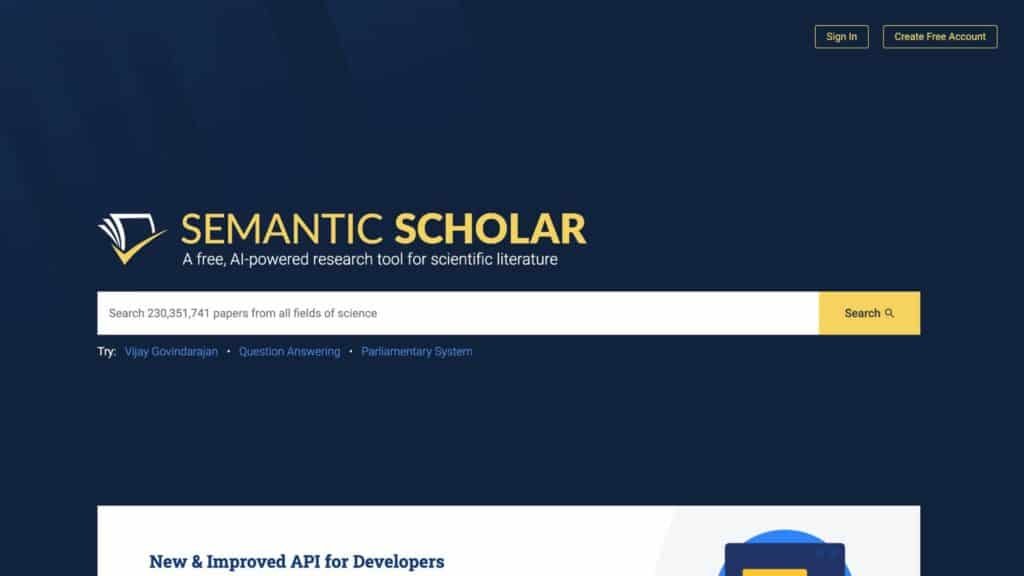
It is another scientific research search engine that medical writers can use for free to extract vital information, link to relevant research, and summarize papers. It uses advanced LLMs and machine learning algorithms. Developed by Allen Institute for AI, Semantic Scholar can quickly find related research papers by semantic understanding of questions, omitting the dependency on keyword matching and reducing information overload.
Features:
- AI-generated summaries
- Semantic search
- ‘Ask This Paper’ function
- Key insight summaries
- Author impact analysis
6. Paperpal
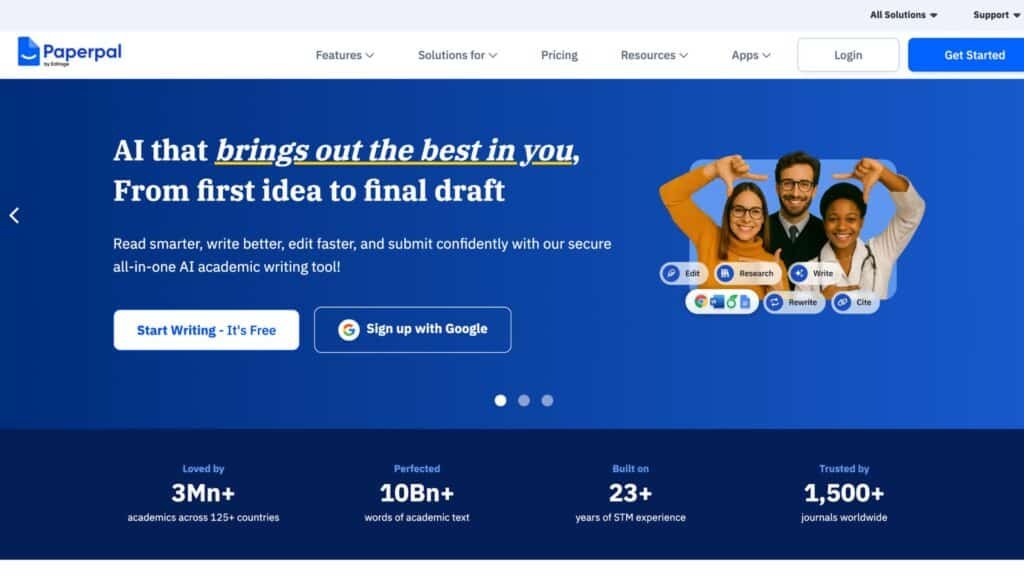
It is especially developed for academic writers, researchers, and students to aid in their scholarly work. It assists users in various ways from formation to submission. Unlike most grammar correctors, Paperpal adheres to academic language, corrects grammar, checks context, and ensures clarity and accuracy without changing equations, technical terms, and important references.
Features:
- Grammar and clarity improvement
- Support with research
- Management of citations and bibliography
- Editing and content development
- Thorough checks before submission
Also Read: Data Analyst Roadmap 2026: Skills, Tools, and Salary Insights
7. BioGPT
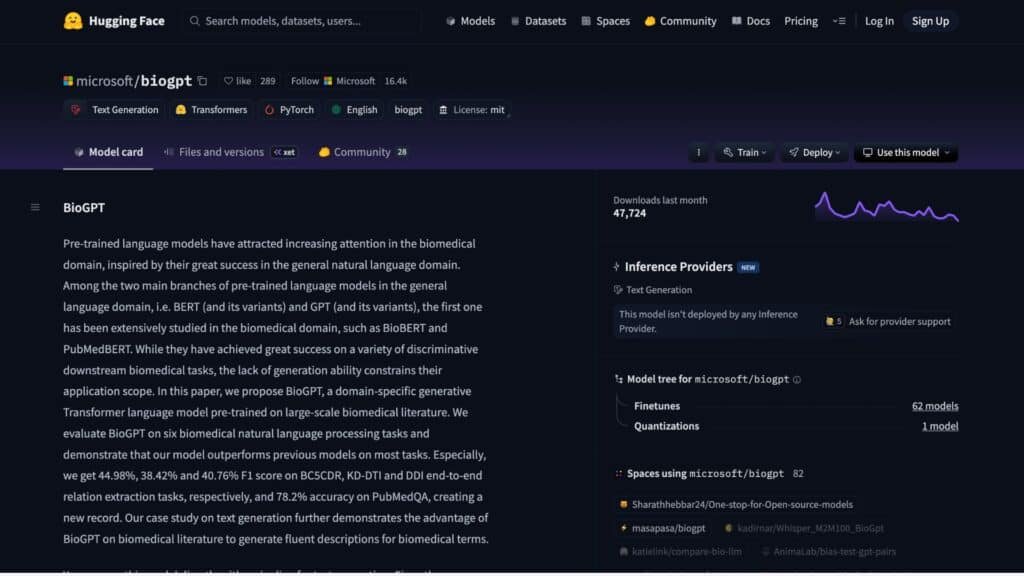
It is an innovative AI language model developed particularly for the biomedical sector, including students, medical writers, and researchers. BioGPT’s generative transformer model is pre-trained on numerous biomedical research articles. It is also adjusted on real-time datasets, like doctor-patient conversations. You can use it to write human-like and context-aware medical content, precisely answer biomedical and clinical queries.
Features:
- Answering medical questions
- Context-aware medical content development
- Pre-trained on biomedical content
- Q&A capabilities
- Analysis of clinical data
8. Genei
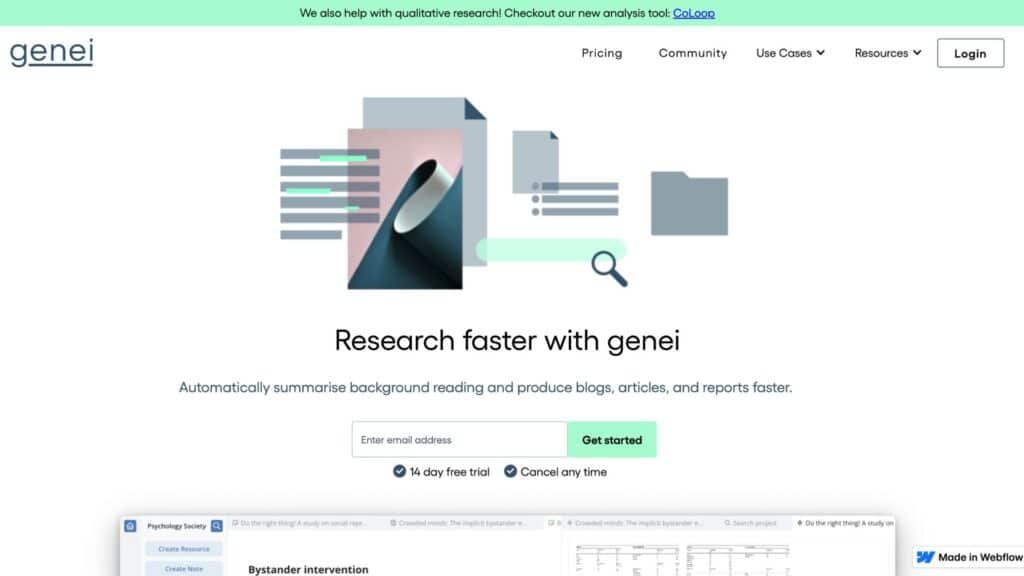
It is an AI-driven writing and research assistant that enables medical writers to enhance their productivity and quicken their workflow. Genei analyzes, summarizes, and extracts vital information from research documents, allowing targeted research and content optimization.
Features:
- Document organization
- AI-driven summaries
- Extraction of popular keywords
- Highlights important concepts within research papers
- Content rephrasing and citation management
- Can be integrated with popular browsers
9. Trinka AI

An AI-powered, tailored tool for maintaining the quality and precision of medical manuscripts and research papers. It is particularly useful to scrutinize difficult grammar and spelling mistakes in technical and scientific contextual writing. Trinka assists medical writers and researchers in producing clear, accurate, and publication-ready manuscripts.
Features:
- Spelling and grammar checks for medical jargon and technical content
- Detection of AI content and plagiarism
- AI-assisted writing
- Formatting and citation checks
- Medical dictionary and custom organizational branding
10. Quillbot
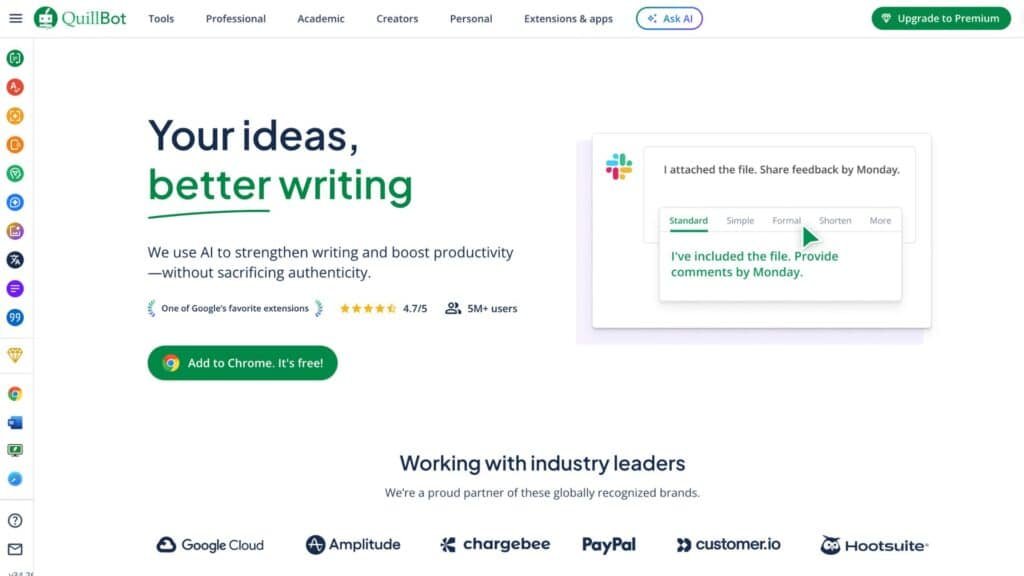
This AI tool is thoroughly used across industries, especially in medical writing and research. It can be used to paraphrase complicated medical content, detect and avoid plagiarism, maintain accuracy, and polish content for scientific and medical research purposes.
Features:
- Paraphrases to enhance readability
- Suggests synonyms
- Spelling and grammar checks
- Different writing modes like academic, formal, etc.
- Detects plagiarized content and assists in changing it
Related: Top Open-Source Data Analytics Tools for Smarter Insights
Benefits of Using AI Tools For Medical Writing & Research
Medical writing and research comprise days and even months of uncompromised hard work. Writers of such complicated and technical content can not just rely on basic tools. AI tools, on the other hand, offer accurate, quick, and insightful assistance.
- AI tools are trained using medical literature from genuine databases, like PubMed or clinical trial data, to provide accurate explanations and terminology interpretations.
- These tools extract information from legitimate sources and peer-reviewed databases, and not random websites.
- They can simplify complicated medical explanations without oversimplifying them.
- They can check the accuracy of references and back-up claims mentioned in the content.
- Many of these tools are compatible with reference managers like EndNote, etc., to streamline workflow.
- AI tools can perform real-time grammar and compliance checks, minimizing errors.
- They can also identify potential collaborators by combing through co-authorship, research areas, and citations.
Future of Medical Writing & Research with AI: What Lies in 2026 & Beyond?
Academic medical writing is basically an organized way of presenting your revolutionary ideas. What do they need to stand out? Be precise, insightful, quality-checked, and thorough. There is always pressure to publish in the academic medical domain, also known as the ‘publish or perish’ ethos. Due to this, many writers and researchers can become stressed or burn out.
AI tools for medical writing have come as a blessing in these cases. Contrary to popular belief, AI tools are not going to replace researchers; instead will assist them in being productive without the extra stress. In 2026 and beyond, these tools, when combined with human innovation and intelligence, will usher in some advancements in the medical research field, for sure!
Related: What Is Paid Search Intelligence? Know All About It







